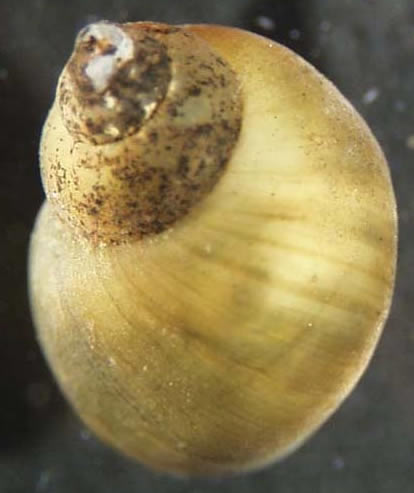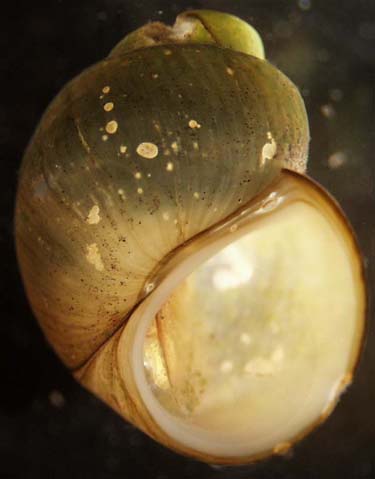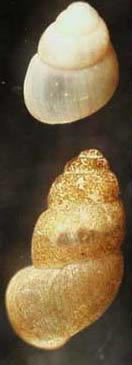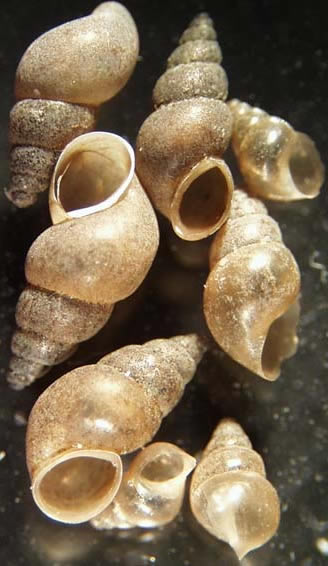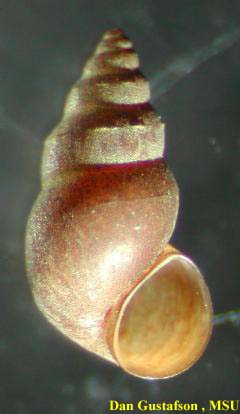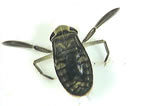
THE XERCES SOCIETY FOR INVERTEBRATE CONSERVATION Aquatic Invertebrates in Pacific Northwest Freshwater Wetlands |
| Identify taxa |
Hydrobiidae |
Hydrobiids are a family of small snails that are incredibly diverse and very difficult to identify. They graze on algae, live for approximately 1 year and are moderately tolerant of human disturbance. Some can be fairly sensitive, living only in habitats that are relatively undisturbed. Others, particularly in the genus Fluminicola, can be quite tolerant. Many species have extremely limited ranges because they have been isolated over geologic time and may only live in a certain set of springs or a single watershed. For that reason, they can receive a good deal of attention when development or management is planned. Snails in the genus Fluminicola can get much larger than the others in this family, with the more common species > 6mm. The last whorl of the shell in Fluminicola is generally much larger than the others, making it more spherical (globose) than cone-like (conical). Snails in the genus Lyogyrus look similar to Fluminicola in being quite broad, but are much smaller (< 6mm) with a slightly more prominent spire to their shell. Other genera have a much more elongate, conical shell where the coils taper more evenly from the apex to the opening. |
Size: small |
 |
© 2007 Xerces Society
Contact info@xerces.org
